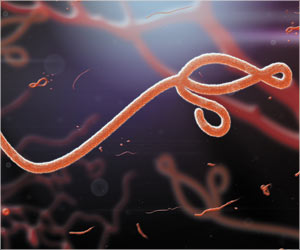
Ben Neuman, virology expert at the University of Reading, said, "This is only the second case of reactivated Ebola. The other was US doctor Ian Crozier, in whose eye doctors found Ebola virus months after he was discharged from a hospital in Atlanta where he had been treated for the disease he contracted in west Africa." Nathalie MacDermott, infectious diseases expert from Imperial College London, said, "There may be similar cases in west Africa but it has not been possible to test them yet."
Elaborating on the risk of long-term carriers transmitting the virus, Jonathan Ball, professor of molecular virology at the University of Nottingham, said, "There is little, if any, evidence that the virus can transmit once these major (initial) symptoms (bleeding, fever, diarrhea, vomiting) have disappeared. There have been reports of possible sexual transmission but these have not been proven conclusively. Whilst we don't know her (Cafferkey's) specific symptoms we have been reassured that before she was admitted she wasn't exhibiting any that we'd associate with a transmission risk to others, so contact monitoring and vaccination is a precautionary measure."
Wright further added, "Given the restricted locations where the virus has been found and the low amounts within these fluids (breast milk, semen and eye fluid), people who may harbor the virus once (they've) recovered pose negligible risk to the general public as the virus could only be transmitted by close, intimate contact. The level of virus found in these fluids is several orders of magnitude lower than that found during the initial, acute phase of infection."
When asked if Cafferkey's relapse revealed about what we do not know, Professor Ball said, "This is frankly staggering. I am not aware from the scientific literature of a case where Ebola has been associated with what we can only assume as life-threatening complications after someone has initially recovered, and certainly not so many months after." Derek Gatherer, a virus expert from Lancaster University, said, "It is now clear that we still have a lot to learn about Ebola's long-term effects."
Source-AFP











